
It can be confusing when your washing machine suddenly smells so bad that it makes your clothes smell too. What do these smells mean, and what causes them to worsen? We asked appliance and cleaning experts to explain the mystery odours.
No matter how good you are at cleaning your washing machine or how careful you are at avoiding laundry mistakes, your washing machine might begin smell strange. More often than not, it's a damp, musty odour, but it can also reach levels of pungent egginess.
And, as that's the last thing you want your fresh, clean clothes to smell of, we thought it best to find out what causes these smells and, more importantly, how to get rid of them.
Why does my washing machine smell so bad?
Whether or not you keep to the expert-recommended time for using your washing machine, the appliance will most likely be one of the most-used in your home. Which means it'll show signs of wear more than your others will, one of those signs being strange smells.
"It’s incredibly frustrating when your laundry doesn’t smell as fresh as it should, especially after taking the time to wash everything properly. Often, the issue isn’t your detergent - it’s the washing machine itself," says Olivia Young, cleaning expert and Product Development Scientist at Astonish.
"Over time, residues from detergent, fabric softener, and trapped moisture can accumulate, creating the perfect environment for odour-causing bacteria and mildew," she adds.
But what specifically causes these smells, and where does this buildup occur? It turns out there are various areas in your machine you'll need to keep an eye on.
1. Unclean detergent drawer
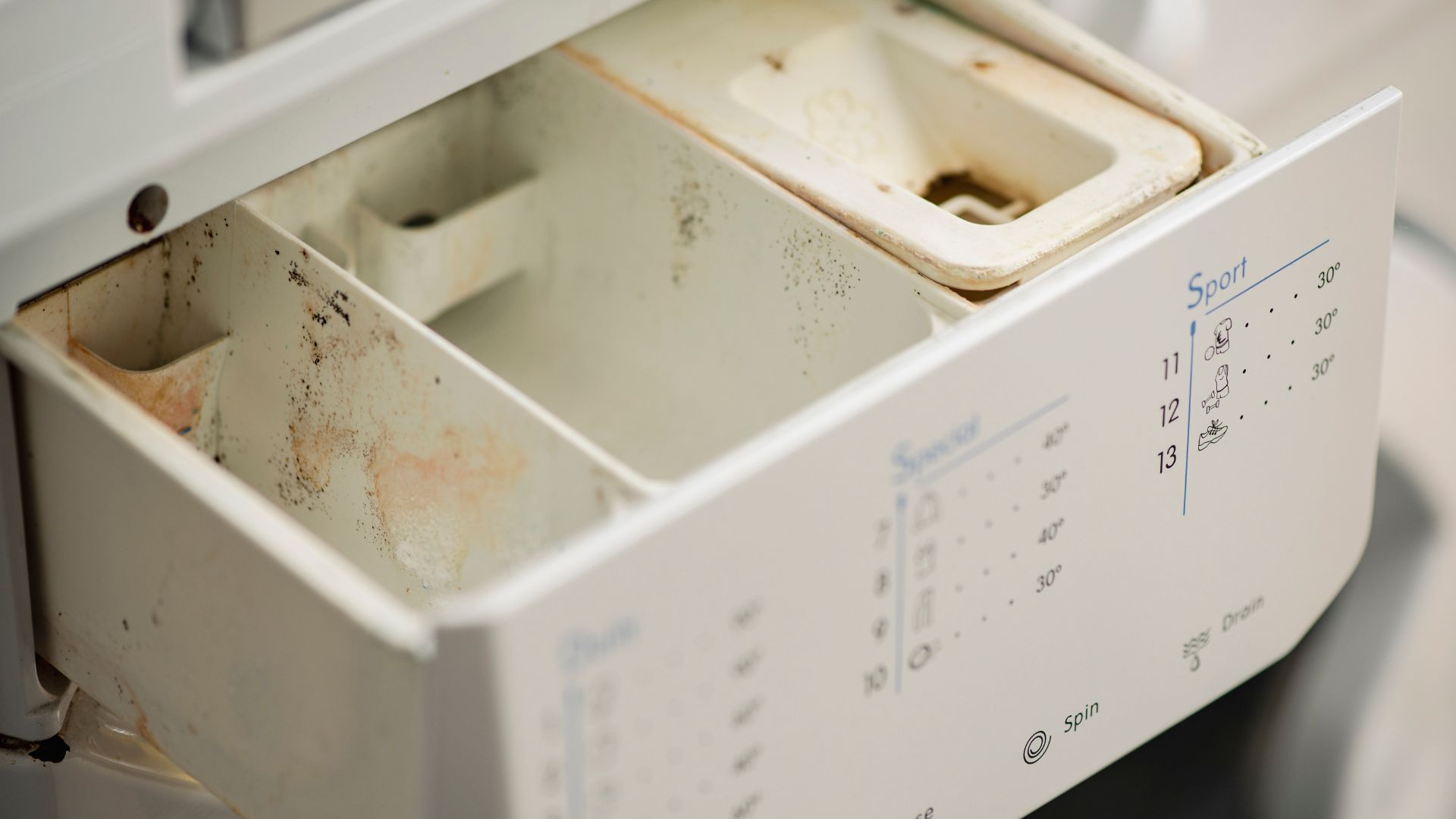
Washing machines are one of the top unexpected places where mould can grow, and that includes the detergent drawer.
"One of the key things to focus on is the detergent drawer. This is a high-contact area where build-up often goes unnoticed," explains Olivia. "Giving the drawer a thorough clean using a light antibacterial solution helps to break down soap scum and reduce bacterial growth."
She recommends using a surface spray that's food-safe, as this will be gentler and less abrasive on the plastic drawer. Olivia also points out that you'll need to allow the drawer to dry fully before reinserting.
2. Mould and dirt in the door seal
Preventing mould in your home can feel impossible, especially when it's hiding in small spaces like your washing machine's seal. But it's very common to find bacterial growth hidden there where the moisture is trapped.
"The seal around the door is another hotspot for trapped moisture and potential mould build-up. Even if it looks clean, it's good practice to wipe it down every week with a soft cloth gently," suggests Olivia.
Whilst it doesn't need to be a daily cleaning habit, regularly cleaning the seal will prevent debris and microbial build-up, which can lead to odours.
"For an extra layer of hygiene, an antibacterial spray that is safe for general household use can be used - just be sure to check compatibility with your appliance's materials. If any signs of mould or mildew appear, it’s important to act quickly to avoid odours transferring to your clothes," she continues.
3. Dirty machine filter
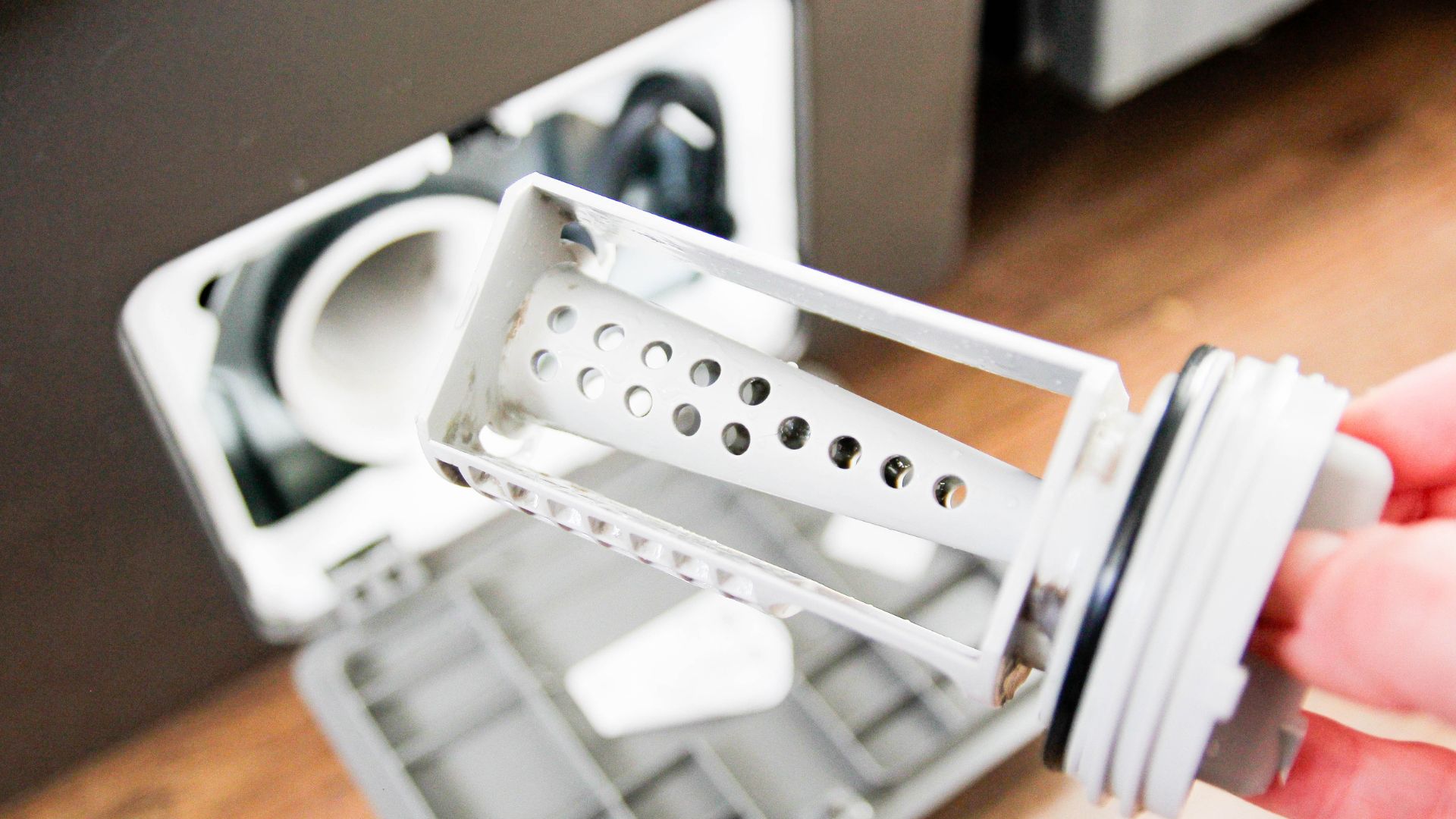
In the same way, you need to keep an eye on the filter of your best dehumidifier; your washing machine's filter will need to be maintained regularly too. Especially if you suspect that is where the smell is coming from.
Katy Roberts, washing machine expert at AO.com, says, "Never cleaning the filter can be a huge issue. Your washing machine’s filter does a good job of catching any loose change or fluff, yet if you’re not cleaning it, then this can also cause quite a smell.”
While it would be ideal to clean the filter after each use, doing it once a week, depending on your usage, will keep it clean enough to stop any smells or blockages.
4. Trapped water
Stagnant water can be a major issue, no matter where it happens in your home. It can lead to you seeing tiny black flies everywhere, and of course, result in a bad-smelling house.
“Stagnant water anywhere can leave a smell, and your washing machine is no different. Check that your machine is draining properly, or it might end up smelling like old mop water," explains Katy.
5. Buildup in the drum and pipes
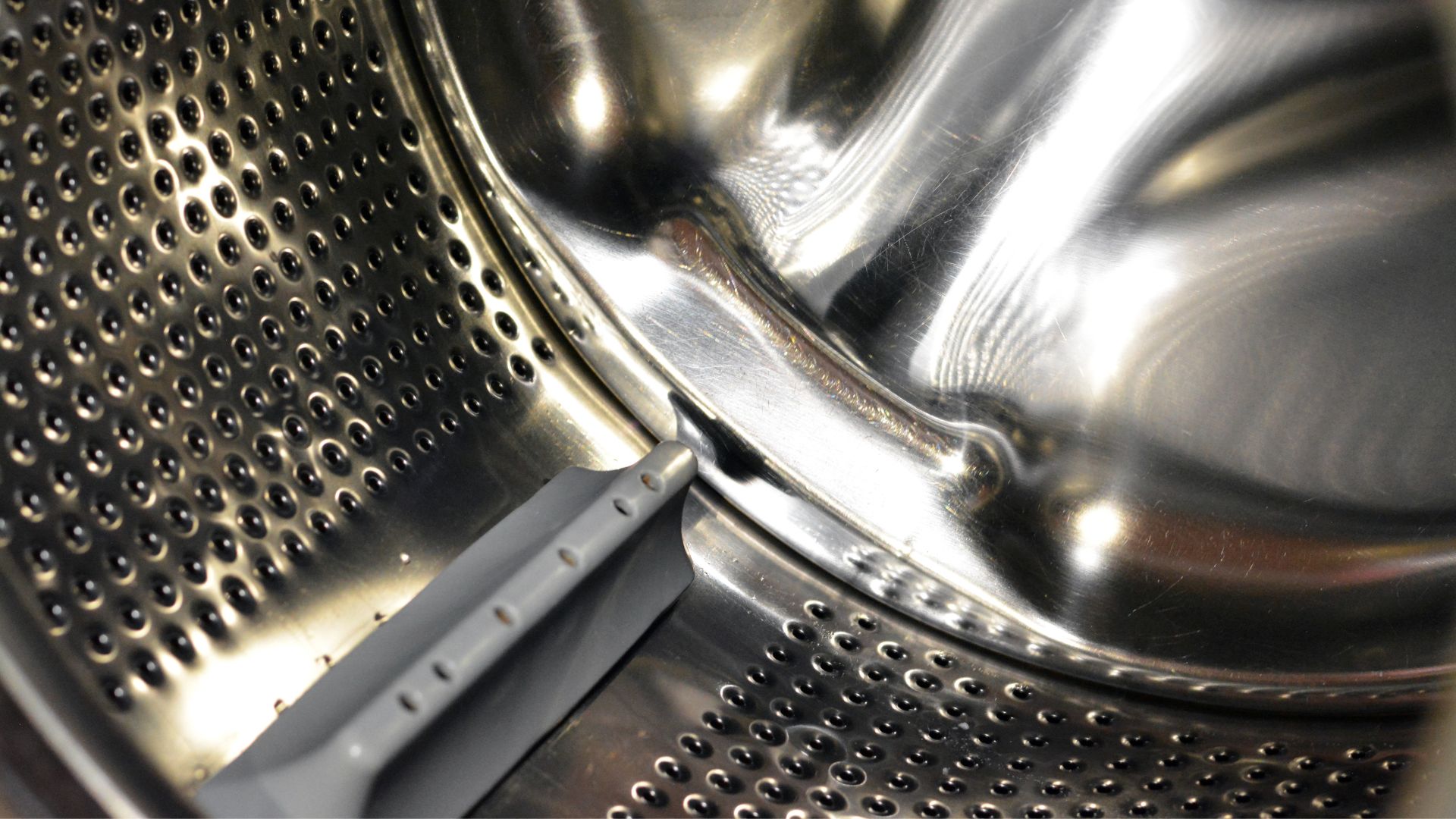
The internal metal drum of your washing machine can hold onto buildup and moisture, too, so it's incredibly important that this is cleaned regularly, or it will start to smell pretty quickly.
Catherine Green, cleaning expert at Smol, explains, "Build up of limescale and bacteria will happen over time throughout your machine and the drum, which can lead to clothes coming out of the wash unclean, or your detergent not being able to do its job properly."
It's also incredibly important to maintain the pipes connected to your washing machine as all the build-up and soaps that affect the machine itself can also start to block the pipes. Which again, will cause smells and other issues.
Shop washing machine cleaning solutions
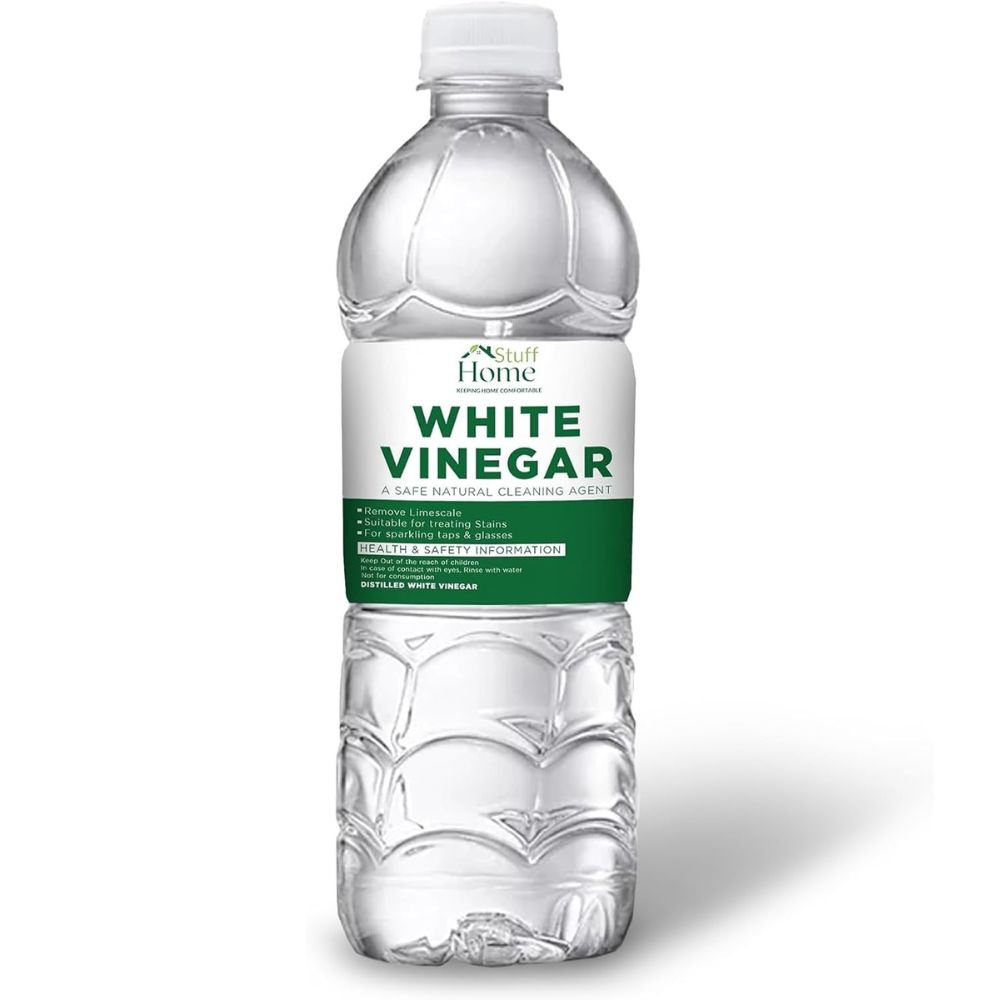
RRP: £5.99 | White vinegar is a brilliant, gentle cleaner that will make quick work of breaking down dirt and killing bacteria without damaging the inside and outside of your washing machine.
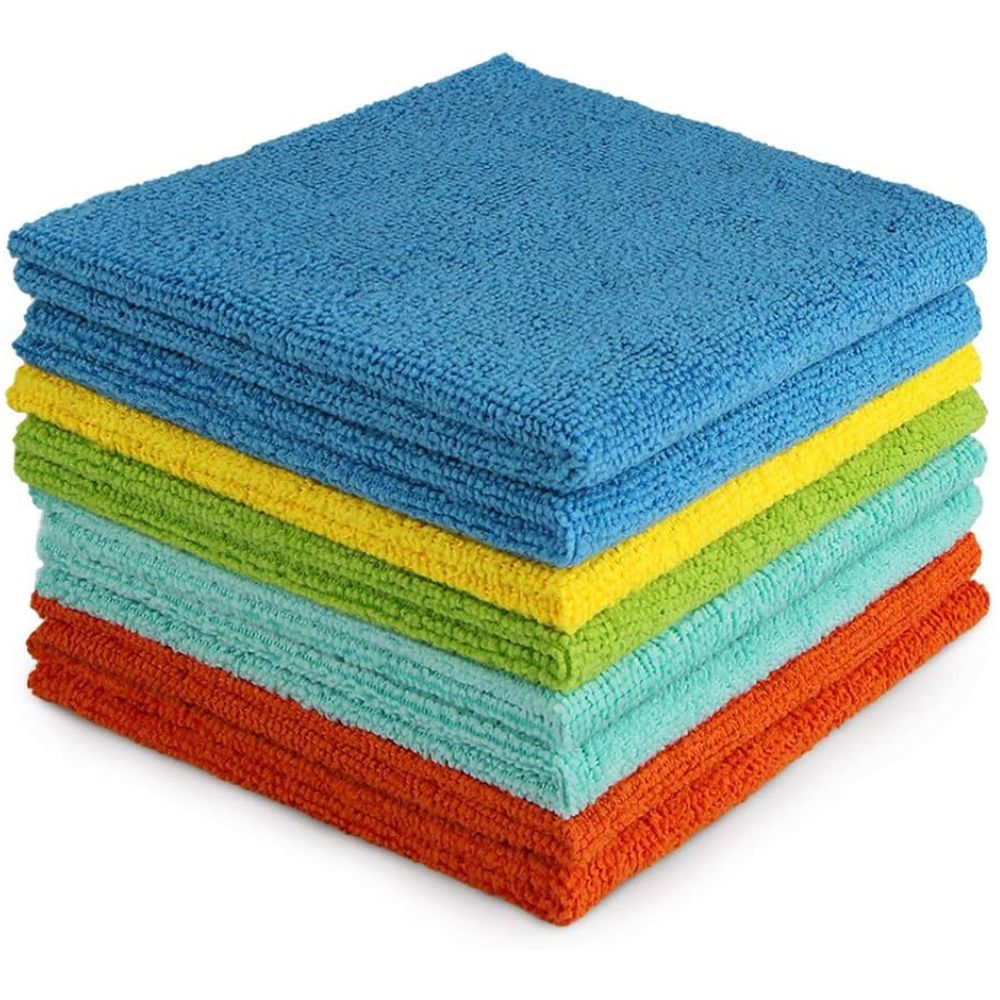
RRP: £3.99 for a pack of 8 | This is a product every cleaner should have in their home, especially when it comes to big cleaning jobs. This eight-pack will make any task that much easier and more efficient.
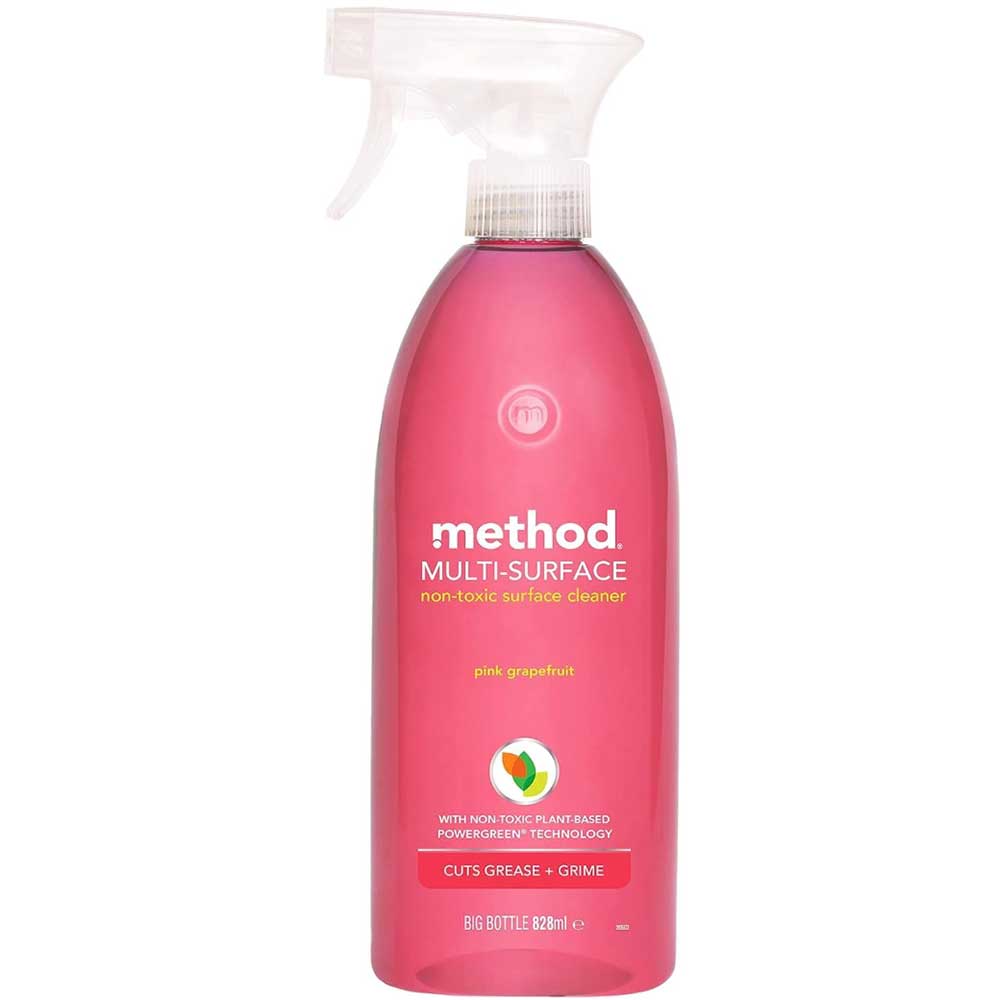
RRP: £3.75 | Cleaning the exterior of your machine with a high-quality, non-toxic multi-purpose spray will give you peace of mind as it kills bacteria and cuts through detergent buildup without unpleasant chemicals.
FAQs
How do I get rid of the horrible smell in my washing machine?
When you're trying to make your house smell good, the last thing you need is pungent, musty odours coming from your washing machine. So, how can we combat these strange smells?
"If your washing machine is starting to smell, then you’re best off tackling this head-on. Run a hot wash cycle without any clothes and add 2 cups of white vinegar or half a cup of bicarbonate of soda to your washing machine’s drum," advises Katy.
Then she recommends scrubbing the door seal with hot soapy water or a trusty vinegar mix and ensuring it's thoroughly dry after cleaning.
"You should also wipe down the detergent drawer with soapy water and pay special attention to the drawer housing, which can get mouldy in the corners," continues Katy.
Finally, you'll need to clean your washing machine's filter and make sure there's no buildup causing the smell.
Does fabric softener make your washing machine smell?
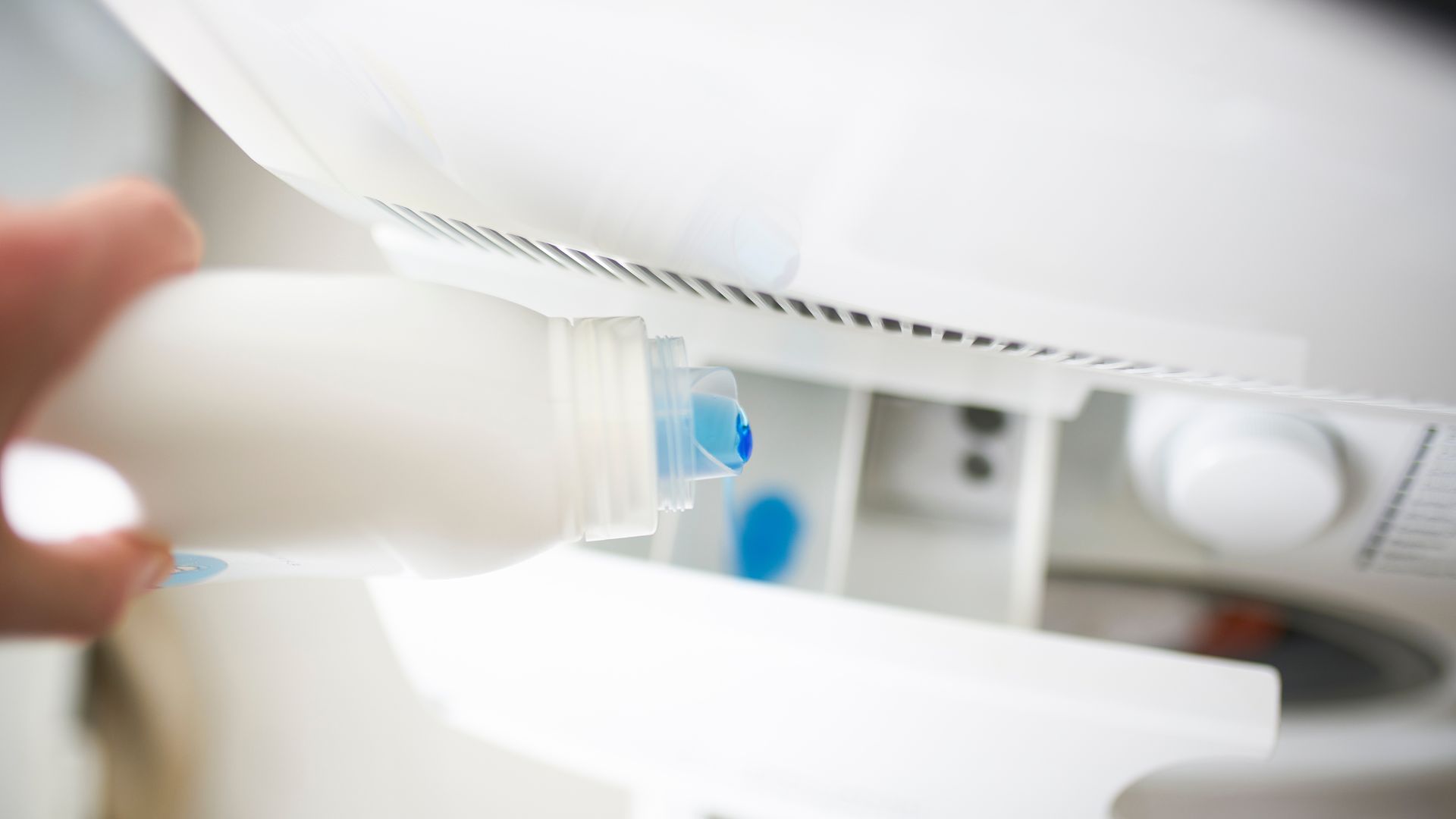
Whilst you may think that fabric softening is a trustworthy addition to your washing routine, too much can do more harm than good.
"If you’re using fabric conditioner that contains animal fat (most do), then you might suffer from black mouldy drawers! It’s important to remove this mould as often as possible," explains Catherine.
She also recommends switching to a fabric conditioner with no animal fat, as this will slow down any bacterial growth and minimise buildup.
Can you put bleach in a washing machine?
Bleach is a common favourite for deep cleaning your house, and it's no surprise why, thanks to its powerful germ-killing properties. However, it can be too harsh for some household jobs.
"While you may technically add bleach to your washing machine, you should avoid doing this entirely. Undiluted bleach can cause havoc to your washing machine and could also damage your clothes if you’re not careful," warns Katy.
Instead, we'd recommend cleaning with white vinegar as this can help remove stains and odours from your clothes. Alternatively, Katy suggests pre-treating your clothes with diluted bleach, then adding them to the washing machine.
Another great tip from the experts is that after every wash, you should leave your machine door open for a couple of hours. This will help air out any moisture and ensure all compartments are drying in between cycles.







